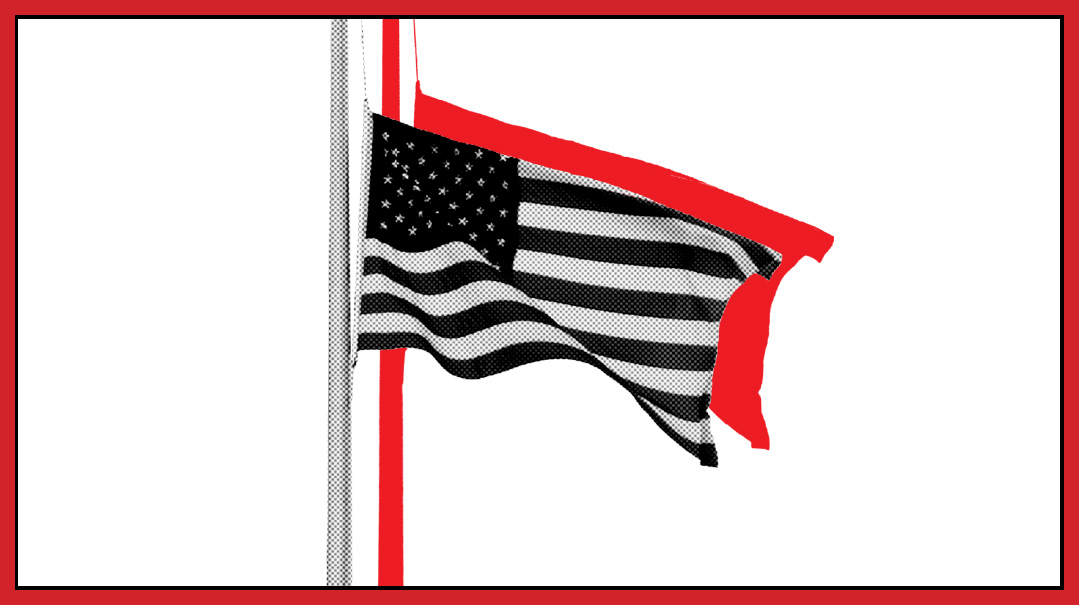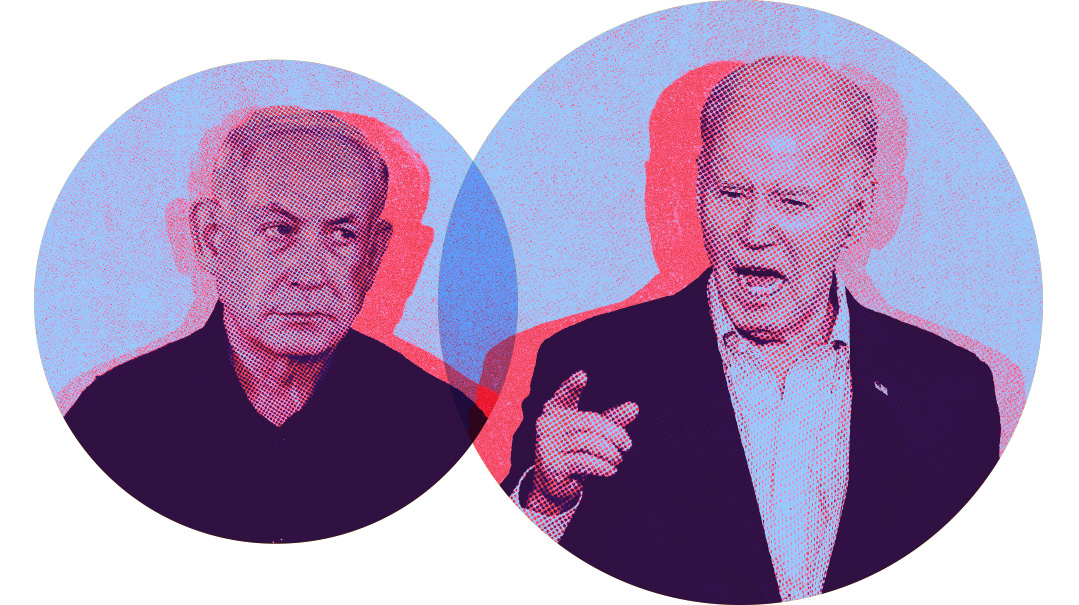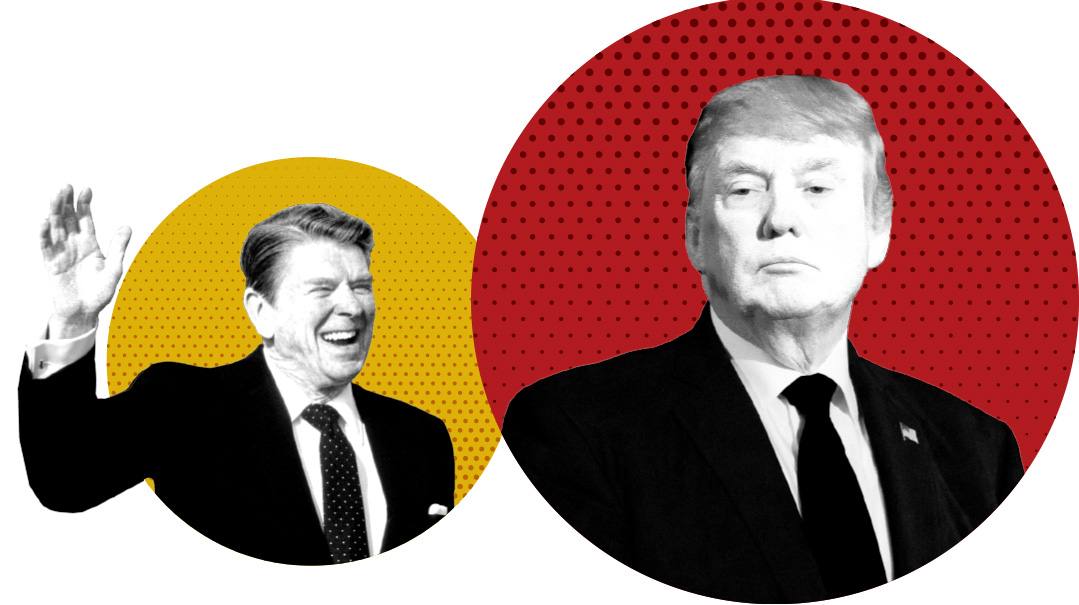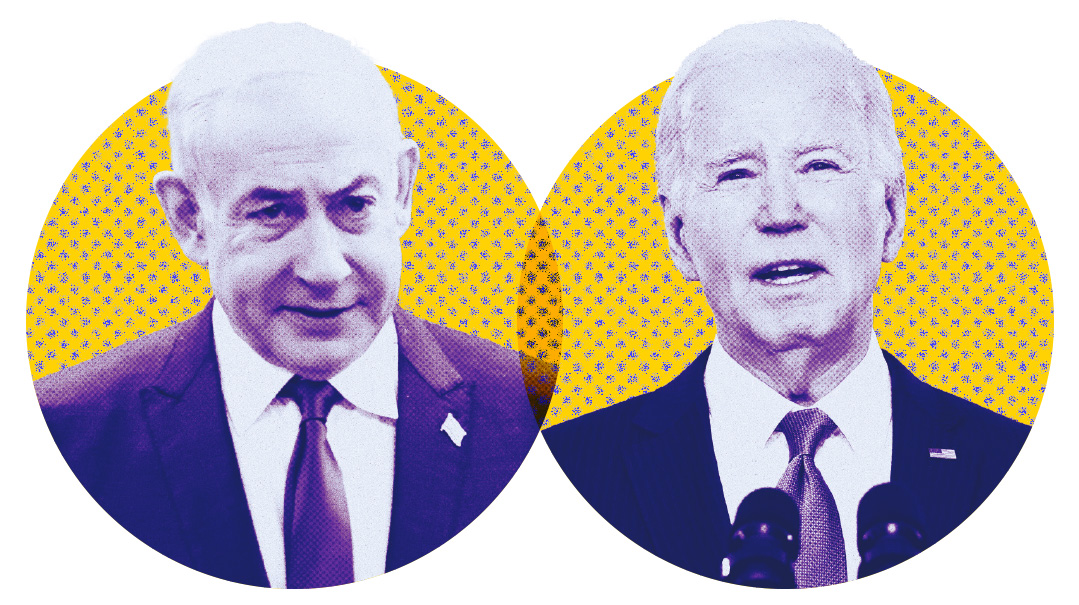America Battles Its Guilty Conscience

“...an underlying assumption that the West and especially the US are guilty of causing all suffering in the world”

P
olitical cartoons are supposed to convey a clear-cut idea with a dash of humor.
Sometimes, the subject matter isn’t humorous.
In Friday’s Israel Hayom newspaper, cartoonist Shlomo Cohen drew a caricature of Uncle Sam, kneeling on his left knee while extending a nuclear bomb to an Iranian ayatollah standing tall in front of him with a big smirk on his face.
The US and its European partners are now expected to sign a new nuclear deal with Iran, perhaps by the end of September or early October. The exact timing is contingent on the outcome of the International Atomic Energy Agency (IAEA) board meeting in Vienna mid-month and the annual UN General Assembly conclave in New York later this month.
Iran is pressuring the IAEA to drop its demands for an explanation for radioactive materials inspectors discovered found at “undeclared sites” in Iran. Israel is concerned the IAEA may cave to Iran because of political pressure to get a deal done. And while a meeting on the sidelines at the UN between top US and Iranian officials seems unlikely at this stage, American eagerness to put this issue behind them means anything is possible.
None of this is surprising considering the composition of the Biden administration, which includes most of the top Obama aides who negotiated the original nuclear agreement with Iran in 2015.
Russell Berman, a senior fellow at the Hoover Institution, blames the ideological bias of progressives in the Democratic Party who “indulge in romantic affection for the revolutionary regime in Iran, no matter how brutal.”
Unfortunately, this type of thinking has a precedent. In his review of Henry Kissinger’s latest book, Leadership: Six Studies in World Strategy, Jacob Heilbrunn, the editor of National Interest, harkens back to 1968 when Kissinger was director of the Harvard Defense Studies Program. Harvard, long one of America’s bastions of liberal thinking, hosted Singapore’s Prime Minister Lee Kuan Yew at the peak of US military involvement in the Vietnam War. As the crow flies, Singapore is less than 1,000 miles from Vietnam.
When Harvard scholars told Lee that they considered President Johnson either a war criminal or a psychopath for pursuing escalation of the conflict, Lee responded: “You make me sick.” He proceeded to lecture Harvard’s enlightened elite about the paramount need for the US to provide a modicum of global security in order to maintain a balance of power in Southeast Asia.
That message might not have been what the Harvard crowd wanted to hear, but it’s what they needed to hear. With the exception of the Gulf War in 1991, when a US-led coalition forced Iraq to give up its conquest of Kuwait, and with some rare victories in the war on terror that followed the 9/11 attacks, America has conducted foreign policy on its heels.
And much of that stems from the same faulty thinking that led Harvard scholars to condemn their own president as a war criminal, instead of the North Vietnamese and their Russian and Chinese sponsors.
Russell Berman, quoted above, sums it up best: “[It stems from] an underlying assumption that the West and especially the US are guilty of causing all suffering in the world. They draw the policy conclusion that America’s enemies are automatically right and our allies are always wrong.”
(Originally featured in Mishpacha, Issue 926)
Oops! We could not locate your form.






